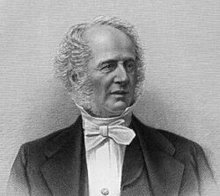"There's not a clear-cut leader on this team . . . I suppose in some ways that's unfortunate, but that's the way it's been the whole time . . . I don't think it's fair for us to complain or point to 'well, there's this kind of leadership, or that kind of leadership.' We've had the same kind of leadership all year and we've been able to success and manage, so that's part of what it is. It's not going to change this year. We have what we have, and the personalities are what they are."
Stallings continued: "Fortunately, . . . these guys don't have to be led. They do a good job of taking care of themselves and doing what they're supposed to do."
While I think Stallings' assessment is candid, it's also more than a little troubling. Kevin's point about Vanderbilt having the same kind of leadership throughout the year is instructive and forces fans to recognize that this team has been more successful than not with the leadership they've got. With that said, the thing about leadership (especially in the context of sports) is you don't need it until you need it. Worse, when you do need it, you REALLY need it, but often don't know that until it's too late. Vanderbilt has lost 7 games this season; of those, 4 have been by 4 points of less, 3 have been in OT (2 of which were decided by 4 points or fewer), and 3 have come after the Commodores had double-digit leads in the second half. In almost all the games Vanderbilt has lost, it's hard to argue that leadership (or lack thereof) didn't have a hand in the final outcome. To be fair, Vanderbilt has won 3 games this season decided by 4 or less, and come back from 2 sizably leads to win on the road in conference play this season as well. That's at least 5 games where Vanderbilt's "leadership" was enough to get them wins.
Politics aside, Stallings' quote reminds me of the now famous quote from former Secretary of Defense Donald Rumsfeld: "You go to war with the army you have, not the army you might want or wish to have at a later time." And, while I am in no way equating risking one's life in service of their country with athletic competition, I do think CKS' analysis is apropos. I guess where I'm stuck is: what does this really mean for this team? Vanderbilt has had guys "step up" and be leaders in individual games: Jeffery Taylor at Mississippi State comes to mind, as does John Jenkins' performances against Kentucky and Georgia in Athens, but this still is still bereft of a true, night in and night out "leader." Neither one of the guys I mentioned is a leader the way Matt Freije, Derrick Byars, Shan Foster, or to a lesser extent Jermaine Beal, were. Perhaps that's not such a bad thing. Stallings is smart enough to recognize that at this point in the season, bemoaning a lack of leadership ignores the team's successes, while failing to address the underlying problem. It's nearly impossible to say to a player "lead" and them be able to do so on command. Leadership, I suspect, evolves more organically than that. What's frustrating for me, is there were times this season when it looked liked someone on the team would take over the emotional reins and lead this team the way the former Commodore greats I mentioned did. This hasn't happened yet. And while there's nothing to say it won't, it seems that according to Stallings, it won't, because that's just not how they are built.
I wish I had more intelligent to say on this quote. It's possible Stallings quote is a classic gaffe as understood through the prism of Washington, D.C.: "an occurrence of someone telling the truth by accident." Stallings answered a question honestly, and in doing so caused more questions to be raised. I'll throw it open to the floor. Can anyone else make sense of this quote and what it says about this team? these players? or this coaching staff? Perhaps leadership, like porn, is something you know when you see it. Perhaps its just a descriptive "intangible" used when one can't explain why a team loses 4 games by 4 points of less, 3 games in overtime, and 3 games where a team owned double-digit second half leads. Again, I don't know.
What I do know is as the season progresses, games get tougher and tougher to win. The teams that win the most, seem to all have a player widely recognized as that team's leader. Stallings' positive spin that " . . . these guys don't have to be led. They do a good job of taking care of themselves and doing what they're supposed to do," is just that: spin. Players don't have to be led until they have to be led. And like I said, when you get to the point where you need to look for the leader, it's probably too late.
What do you think VSLNation, what do you make of all this?











3 comments:
John Jenkins has the heart and the mind-set to be that leader, and has come the closest to doing it. Unfortunately, as seen in the UT game, he still needs to mature and develop as a player to truly be able to put the team on his back.
Honestly, the other guy who seems to actually exhibit leadership on this team is Brad Tinsley.
I don't think this team necessarily needs a single leader to succeed in the postseason, since we have so many strengths all over the floor, and a very talented team top to bottom. However, looking at the past, the last time a VU player really stepped up and led this team in the tourney was Derrick Byars...which was also the last time we had success in the tournament. That's why another first round loss this year wouldn't be surprising (though it would be very painful).
Agree, there is no current leader. Being ready to play for 40 minutes would help. What is so difficult about running the offense and playing defense? It is amazing how 1 player tends to light us up.
I reckon this conversation is probably dead, but I am going to pile on anyway.
There is a coaching theory about team chemistry that says you need three roles filled on your team and any given lineup to be successful:
* Stabilizers - Steady, glue-guys you can count on
* Studs - Athletes who physically (size, strength, speed, skill, etc.) cause an emotional response in the opponent, and require that the opponent game plan around them
* Winners - Heart-and-sole types who will their team to win
(As a corollary, the theory also says that players who make no contributions in any of these areas should not play.)
This team clearly has studs (JJ, JT, Festus, even Lance). Walker and Tinsley are stabilizer poster-boys. But who is a Winner?
I think JJ has it in him, but for whatever reason, doesn't seem to permit himself to take the role. This should be his team; he's earned the right to take the role; but he hasn't. Who else? Steve Thunder?
I am glad to see Coach Stallings address this. Unfortunately, I agree with him that there probably isn't much he can do about it.
Post a Comment